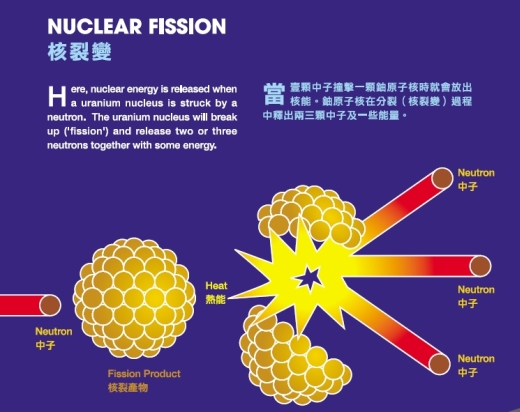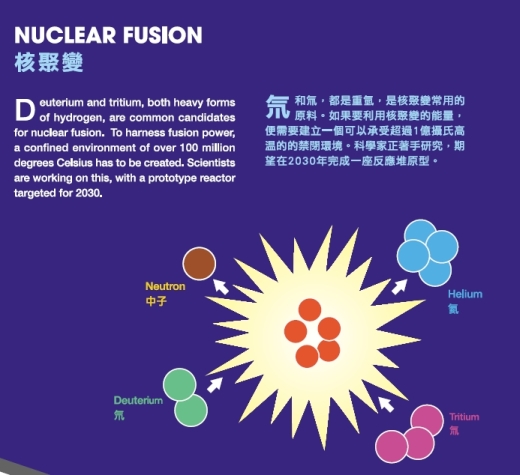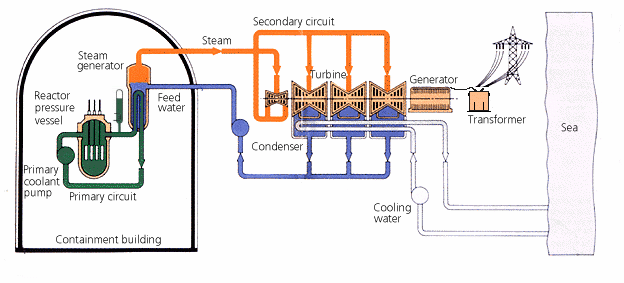Inexhaustible supply of nuclear energy
Inexhaustible supply of nuclear energy
YEUNG Siu-wai
As the world's storage of oil, coal and natural gas decreases, more and more people support the use of nuclear energy. The number of nuclear power plants around the world is ever increasing. However, is the supply of nuclear energy really inexhaustible?
What is nuclear energy?
Nuclear energy is released when the structure of an atom's nucleus changes, either under nuclear fission or nuclear fusion. In nuclear fission, relatively large nuclei such as those of uranium and plutonium split. In nuclear fusion, relatively small nuclei such as those of deuterium and tritium combine. In both cases, a large amount of concentrated energy will be released, which is called the nuclear energy. Nowadays, scientists still cannot control the process of nuclear fusion effectively, thus nuclear fission is used to generate electricity in all existing nuclear power plants.


How does nuclear power plant generate electricity?
Nuclear fuel inside the reactor of a nuclear power plant undergoes nuclear fission and produces a large amount of energy. Through the water in the primary circuit, the energy is transferred from the reactor to the boiler (i.e. the steam generator in the diagram below) where steam is produced. The steam then passes through the secondary circuit and goes into the turbines to drive the generator which produces electricity.


Nuclear power station using pressurized water reactor (Photo: Electrical and Mechanical Services Department)